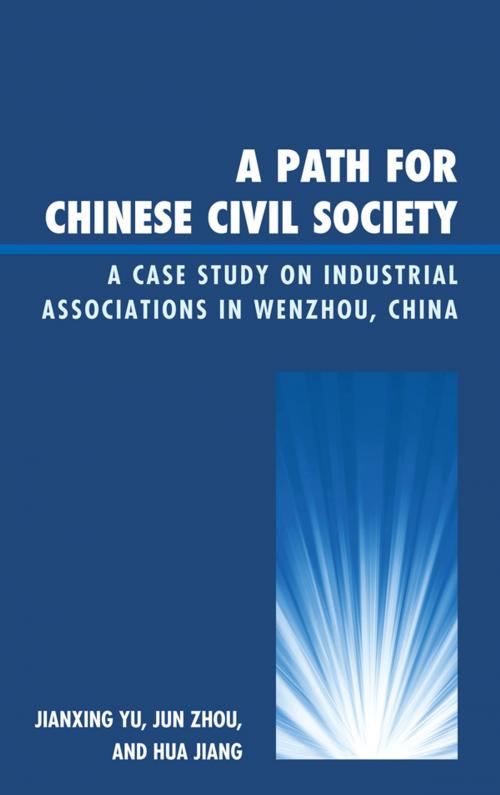A Path for Chinese Civil Society
A Case Study on Industrial Associations in Wenzhou, China
Nonfiction, Social & Cultural Studies, Political Science, Politics, Labour & Industrial Relations, History, Asian, China, Economic Policy| Author: | Jianxing Yu, Jun Zhou, Hua Jiang | ISBN: | 9780739170083 |
| Publisher: | Lexington Books | Publication: | February 12, 2012 |
| Imprint: | Lexington Books | Language: | English |
| Author: | Jianxing Yu, Jun Zhou, Hua Jiang |
| ISBN: | 9780739170083 |
| Publisher: | Lexington Books |
| Publication: | February 12, 2012 |
| Imprint: | Lexington Books |
| Language: | English |
This book combines empirical research and theoretical discussions to demonstrate that the civil society paradigm as a western concept could be applicable to the study of state-society relations in contemporary China. However, the growth of Chinese civil society does not necessarily present an adversarial or confrontational relationship between state and society, but rather it is a cooperative relationship based on common interests and mutual benefits between industrial associations and local governments. The findings of this research confirm that, in contrast to the conventional civil society model in Western and Eastern Europe, where civic organizations are independent of the state, challenging the state hegemony, Chinese civic organizations, however, still lack autonomy and even remain closely linked to the state, but they are growing and expanding their public space and important role in public affairs through active participation. This non-western path for civil society development is a precise reflection of reality that is profoundly shaped and constrained by Chinese institutional, sociological, and cultural context.
Through close investigation into the industrial, organizational, and social governance of industrial associations in Wenzhou and in-depth analysis of their challenges and developments within the institutional context, this book provides fresh empirical evidence and insightful analysis of how industrial associations have actively participated in local industrial governance and conduct of public affairs, gained greater space for their development, and become indispensable partners of local government in social governance.
This book combines empirical research and theoretical discussions to demonstrate that the civil society paradigm as a western concept could be applicable to the study of state-society relations in contemporary China. However, the growth of Chinese civil society does not necessarily present an adversarial or confrontational relationship between state and society, but rather it is a cooperative relationship based on common interests and mutual benefits between industrial associations and local governments. The findings of this research confirm that, in contrast to the conventional civil society model in Western and Eastern Europe, where civic organizations are independent of the state, challenging the state hegemony, Chinese civic organizations, however, still lack autonomy and even remain closely linked to the state, but they are growing and expanding their public space and important role in public affairs through active participation. This non-western path for civil society development is a precise reflection of reality that is profoundly shaped and constrained by Chinese institutional, sociological, and cultural context.
Through close investigation into the industrial, organizational, and social governance of industrial associations in Wenzhou and in-depth analysis of their challenges and developments within the institutional context, this book provides fresh empirical evidence and insightful analysis of how industrial associations have actively participated in local industrial governance and conduct of public affairs, gained greater space for their development, and become indispensable partners of local government in social governance.















